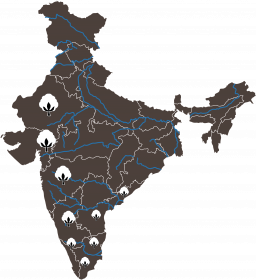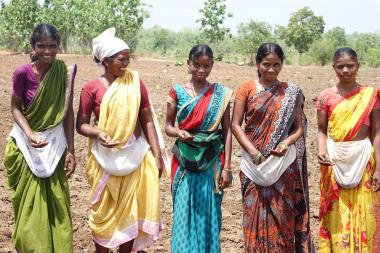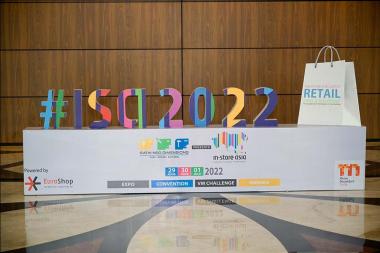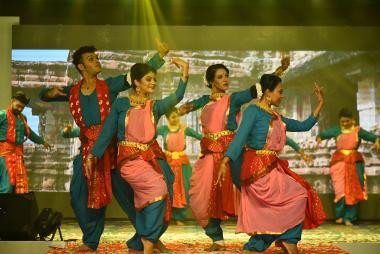Jahresbericht 2022 der Bremer Baumwollbörse
Der kürzlich veröffentlichte Jahresbericht der Bremer Baumwollbörse bietet eine umfassende Analyse des weltweiten Baumwollmarktes im Jahr 2022.
Detaillierte Länderberichte zu Produktion und Verarbeitung der Naturfaser sowie zahlreiche Grafiken und Tabellen machen den Bericht zu einer wichtigen Ressource für Branchenexperten in der gesamten Lieferkette. Langzeitstatistiken zu Erträgen, zum Handel sowie zur Preisentwicklung veranschaulichen Trends bis zum aktuellen Zeitpunkt.
Schwerpunkt Indien
Ein Schwerpunkt liegt in diesem Jahr auf der Baumwollsituation in Indien – dem Land, das über die mit Abstand größte Baumwollanbaufläche weltweit verfügt. Der indische Baumwollanbau und die mehr als 10 Millionen vorwiegend Kleinbauern leiden seit Jahren unter sinkenden Erträgen. Dies hat auch Folgen für die Verarbeitung der Naturfaser im Land.
In weiteren Analysen des Jahresberichtes wird zudem deutlich, wie sich die verschiedenen Krisen des vergangenen Jahres – Corona, Krieg und Klimawandel – auf die Akteure des weltweiten Marktes auswirken. Darüber hinaus umfasst die Publikation detaillierte Einblicke in die gesamte Textillieferkette mit Fokus auf deutschsprachige Länder sowie Europa.
Aktivitäten im Jubiläumsjahr
Der ebenfalls enthaltene Tätigkeitsbericht der Bremer Baumwollbörse stellt die Aktivitäten im Jubiläumsjahr zum 150-jährigen Bestehen des Verbandes heraus. Darunter die Veröffentlichung des Jubiläumsbuches, eine Jubiläumstagung mit Galadinner sowie einen Tag der offenen Tür. Auch das Engagement der Bremer Baumwollbörse in vielfältigen Initiativen rund um die Baumwolle und Naturfasern sowie die Einbettung in ein Netz an Partnern wird deutlich.
Bremer Baumwollbörse














